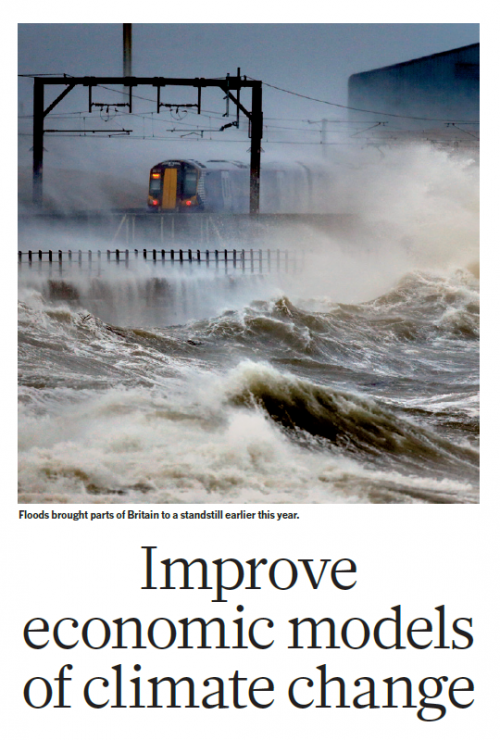-

Rethinking Health-Based Environmental Standards
In Whitman v. American Trucking, the Supreme Court interpreted the Clean Air Act to require the EPA to set the National Ambient Air Quality Standards (NAAQS), without considering costs. Instead, the agency must rely exclusively on health-related criteria. The authors argue that such health-based standards are problematic because there is no coherent way to set the permissible level of pollution based on health considerations alone and, ironically, the NAAQS have generally been set at levels that are inefficiently lax from an economic perspective. The authors urge a reinterpretation of the American Trucking case that would allow the EPA to consider costs-benefit analysis when it would lead to more stringent standards, as it currently does for most regulated pollutants.
-
Global Warming: Improve Economic Models of Climate Change
Costs of carbon emissions are being underestimated, but current estimates are still valuable for setting mitigation policy, say Richard L. Revesz, Peter H. Howard, Kenneth Arrow, Lawrence H. Goulder, Robert E. Kopp, Michael A. Livermore, Michael Oppenheimer, and Thomas Sterner in Nature.
-
_110_86_90.jpg)
Quantifying Regulatory Benefits
The author responds to an argument made by Cass Sunstein that administrative agencies should use breakeven analysis when unable to quantify benefits of a specific regulation. Breakeven analysis seeks to determine how high nonquantifiable benefits of a regulation would have to be for the benefits to justify the costs. In this Comment, the author argues that breakeven analysis can be useful but is always a second-best technique. The first-best approach is to quantify the benefit.
-

Cost-Benefit Analysis and Agency Independence
In “Cost-Benefit Analysis and Agency Independence,” Professor Michael A. Livermore argues that cost-benefit analysis provides a standard that constrains the exercise of OIRA’s power, helping to preserve the autonomy of government agencies in the face of White House review. This argument challenges the prevailing view that cost-benefit analysis is a tool for the President to impose authority over executive agencies.
-
Burning Rain: The Long-Range Transboundary Air Pollution Project
Book Chapter
This chapter, in Toxic Airs: Body, Place, Planet in Historical Perspective, assesses the development of the first international study to examine the atmospheric transport of pollutants that cause acid precipitation: the long-range transboundary air pollution project.
Viewing all publications in Academic Articles/Working Papers

